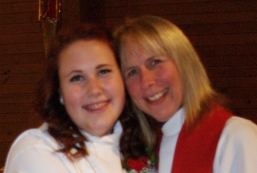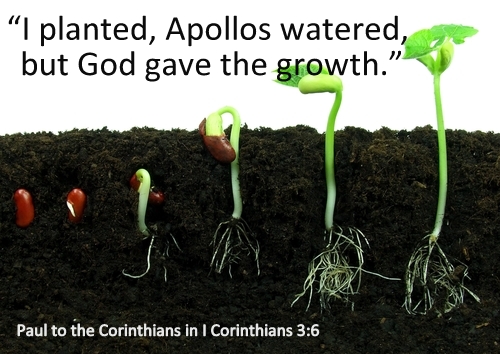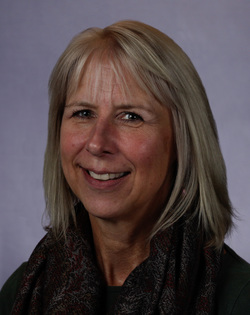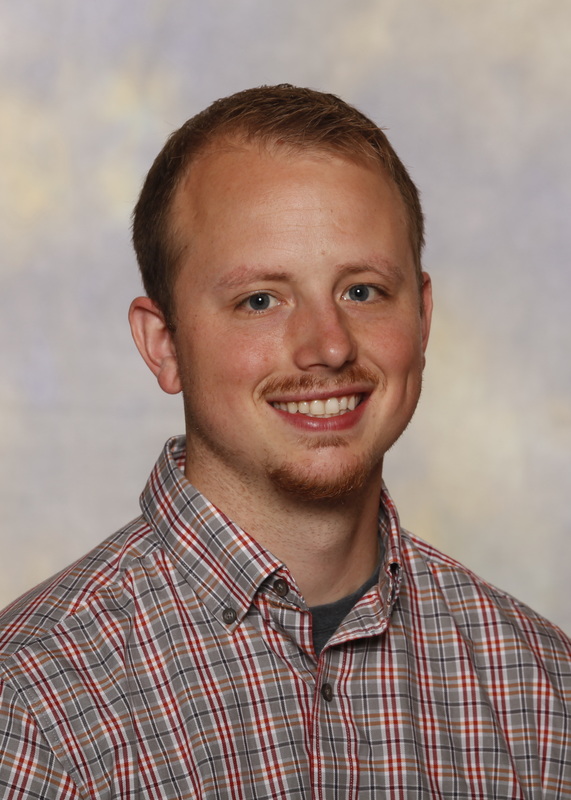|
Then he said to his disciples, “The harvest is plentiful but the workers are few. Ask the Lord of the harvest, therefore, to send out workers into his harvest field.” Matthew 9:37-38
We are blessed that we belong to a community and a fellowship of believers who can freely join together on Sunday mornings to praise God and to hear the promise of salvation proclaimed to us in Word and sacrament. But what about those people who have never darkened our door? How do we share the life-changing message of hope and peace that we have come to know so well? What if I don’t feel comfortable talking about my faith? I have heard someone recently describe the act of public witness as one of becoming a “Gospel Ninja.” Think about it, ninjas blend in to their surroundings. They don’t draw undue attention to themselves because they have a mission to complete. They train themselves to be ready for any situation. They are able to slip in and out without anyone noticing. Yet they leave an indelible impression with their presence and their actions. Imagine if we took this mentality into our public ministry. Blending in with the people we live and work beside, we would stealthily offer kindness and patience to those we encounter; providing a listening ear to the person sitting next to us on the bus; giving a little more generous tip to the harried server at the busy restaurant; offering to pray for an acquaintance or even a stranger who shares a fear or concern with us. We don’t have to stand on the street corner with a bullhorn or picket signs that proclaim our faith. We can quietly and powerfully witness to our community and our families by being people who live out what we talk about in church on Sunday mornings. The power of the gospel is most evident when it is transformed from empty words into tangible actions. It’s harvest time. There are plenty of people in Federal Way and Western Washington who are in need of some good news.
2 Comments
 “I planted, Apollos watered, but God gave the growth.” I Corinthians 3:6 Paul is frustrated with his congregation. They are taking sides, showing favorites, pitting one pastor against another: “For when one says, ‘I belong to Paul,’ and another ‘I belong to Apollos,’ are you not merely human?” The Corinthians were quarreling when, Paul says, they should have been banding together to do the work God has given them: to plant seeds of faith so that other new believers can enjoy faith in Christ. Isn’t that the way life in the church goes? We get sidetracked. We start thinking about and declaring our personal preferences. We get tripped up on the small stuff. And we forget that the reason we’re together in the first place is because the Holy Spirit has called us together to be a church in mission. Paul’s words, “I planted, Apollos watered, but God gave the growth,” are a simple but powerful reminder that the work we do is a coordinated effort that requires us to appreciate how everyone contributes to the cause. Paul knew that his job was to plant seeds of faith in Corinth. He knew that he might not be around when the seeds he had planted took root, pushed up through the soil, and grew and flowered. Paul came to expect that his efforts weren’t the only efforts that would matter. When he spoke Christ’s love to the people at Corinth he understood that he might not see the full fruit of his work. So he relinquished control and conceded that God’s work depended on others too—people like Apollos (who was, no doubt much to Paul’s chagrin, evidently a more eloquent preacher than Paul). Paul confessed that it takes the collective efforts and talents of a whole faith community—like many gardeners in a community garden—to see growth in faith. So what part will you play in growing this garden of faith? Are you a planter? Are you a waterer? How will you contribute to helping others experience the love of Christ? Perhaps you have friends who aren’t connected to a faith community. Maybe you have a child who isn’t connected to a church. Maybe you find yourself at lunch with a coworker who is disillusioned with the church, and you could offer them a different vision of what the church can be like. Thinking about how you can contribute is only the first step though. Look around you at Calvary: How do you see others cultivating faith? Identify the gifts of those around you and tell them what you see in them: “Diana, you are so good at identifying new people and helping them to feel welcome.” “Al, your hugs make me feel loved, and I want to share that love with others.” “Jan, you are so good at looking newcomers in the eye, and helping them to feel like they are genuinely seen.” People of Calvary: We have gifts, we have been given to each other as a gift, and we have the gift of the gospel to share. Christ calls us, he commands us, he entrusts us with planting faith in Federal Way. May we plant, water, and then trust that God is giving growth that is about to erupt and blossom. Pray for it, contribute to it, and be ready to be amazed. Your fellow gardener, Pastor Cornell Jesus said to them again, “Peace be with you. As the Father has sent me, so I send you.” When he had said this, he breathed on them and said to them, “Receive the Holy Spirit.” John 20:21-22
We contemporary churchgoers don’t face the kind of adversity that the first disciples faced: We live in a society that gives us freedom to practice whatever religion we see fit. We seldom have religious or political adversaries to contend with in our American culture. But the truth is that while we are free to choose how to express our faith, we are not exactly free to share that faith. Faith, and particularly, faith in Christ, is culturally understood as private. That means that while we may not have hostile opposition trying to do us harm, we may face the opposition of benign disinterest. We may be free to express our faith—within the walls of the church, and behind the ladle at the soup kitchen—but we are not truly welcomed to share it with others. People who don’t go to church are uncomfortable when we try to share our faith with them. Maybe the topic just feels too personal. Or maybe the other truth is that we are so uncomfortable trying to share our faith, that we end up making others uncomfortable too. But, the fact remains that Jesus nevertheless sends us: “So I send you.” And, if we hope to take our Easter faith seriously, it’s important for us to know what we can do to be ready to meet those to whom we are sent. On the first Saturday in May your Council and a dozen-or-so other leaders will meet to talk about exactly that: With whom are we called to share the good news that God is at work breathing resurrection life into the world? And how can we best be ready to welcome them? Here are some thoughts…. Do you know any unchurched people? If the only people you associate with are church members, then this congregation may have a challenge. Church should be a place to develop deep and abiding friendships—and I know that Calvary has been the soil in which many important relationships have been cultivated. However, if all of our energy is directed inward (developing and refining ministries within the congregation and nurturing congregational friendships), then our members won’t have time or ability to get to know unchurched people. And if we don’t know unchurched people, how can we hope to have them feel welcomed here? Are we ready to be non-judgmental? People who don’t frequent church speak a different language than people at church speak. They look at life differently. But change isn’t a precondition of baptism or church membership; change is something that happens as people grow in relationship to Christ. Jesus was ingenious in the way he approached people with very different life circumstances and beliefs than his, and loved them in a way that motivated them to change for the better. Are we ready to love rather than judge the unchurched? Living with questions. We live in a world that raises more questions than we may have good answers for. We also live in a church that has been way too eager to give easy answers to tough questions. Are we ready to listen more and answer less quickly? Are we able to embrace people’s difficult questions, and by doing so embrace them? Being honest about struggles. One of the most profound memories from when I was a teenager was hearing my pastor admit that he struggled in his faith. His honesty helped me to understand that I could struggle and still be part of the community of faith; that the church isn’t comprised of perfect people, and we know as much. Such honesty makes the church attractive to those who know struggle already, and know they need room for it in a place of worship. Dump all assumptions. If we think that newcomers will walk through the doors of the church with a basic understanding of Christianity, or that they must “master” the basics before they become part of the fold, we will need to rethink that. Newcomers may know no more about Christianity than you know about Taoism. If our church hopes to grow, the question is not whether but how we will help newcomers to access faith within our community. Embrace flexibility. If we hope to sustain new Christians in our midst, we will need to do more than host a rousing welcome and initiation into life at Calvary. Growth in faith is never “finished.” The more adaptable we are as a church community—particularly in our strategies for welcoming unchurched people—the better chance we will have of serving a changing community. Having said all that, I invite your prayers and thoughtful consideration of how you might help to make Calvary a place of welcome to newcomers as well as those already here. Having served with you for 13 years, I can honestly say that this congregation has demonstrated an amazing amount of grace, adaptability, and resilience in the face of change. And I look forward to taking the ongoing journey toward being a community that welcomes others readily and makes Calvary a place of grace for all who enter here. Your sister in Christ, Pastor Lori Cornell Immediately the father of the child cried out, “I believe; help my unbelief!” Mark 9:24
“I believe; help my unbelief!” This is the plea a desperate father makes to Jesus. It is startling in its honesty and its confession. There is a misconception that as Christians we can never have doubt, that our belief must be resolute and never waiver. The fact is that there are plenty of crises that we face on a daily basis that can challenge our faith. To be human is to encounter sickness, suffering, disaster, and despair. We ask ourselves why these things happen. We want to know why God would allow good people to suffer. The kinds of experiences that shake our faith to the core are also the kinds of experiences that can shape our faith life and help it to grow stronger. In his book Messy Spirituality, Mike Yaconelli describes these kinds of events as opportunities for us to experience spiritual growth in a whole new way. We tend to label these times when we feel like we are low on belief as if they are a bad or negative thing. Instead of feeling God has abandoned us or isn’t answering our prayers, Yaconelli encourages us to think of those times as periods of quiet reflection, an opportunity to listen and discern what God would have us do. Even with the attitude that a crisis of faith is an opportunity for spiritual growth, it can be difficult to believe that God is present in the midst of our struggles with fear and doubt. How can we find quiet and contemplation when our minds are racing a million miles a minute? We want to know where God is. We want to know the reason something has happened. Where is God in the midst of our suffering? God is present in the hands of a caretaker who gently nurses the terminally ill. God is present in the friend or neighbor who sits with us and shares in our suffering. Sometimes it’s our own fault for making poor choices. Sometimes, there is no good reason, no enduring explanation of why God would allow something to happen. But God does not abandon us to doubt and pain. God does not let us suffer without hope of renewal. The God we know through Jesus Christ understands our suffering. Because Christ chose to suffer on the cross on our behalf, chose to put on our frail human flesh and walk along side of us, we have a God who shows us that there is possibility where nothingness once existed. The women who went to the tomb on that early Easter morning had lost all hope — until they found that the death of their hope for the future was alive and well and amongst the living. We will face many trying times. Like the father of the demon-possessed child, we may feel trapped. But as we journey through the valley of the shadow of doubt and uncertainty, we know that we only need to cry out and ask for help, and we will receive it. We may not feel like we fully believe, but we will be provided plenty of opportunity to have our belief strengthened by a loving and compassionate God who brings life and faith and hope in unexpected places. In Christ, Matt Byrd  Anna Chamberlain and Pastor Lori Cornell Anna Chamberlain and Pastor Lori Cornell On Sunday, October 27th, 2013, five Calvary Confirmands were Affirmed in Baptism. Each took part in leading worship and made a personal statement of faith. Anna Chamberlain agreed to share hers here: A reading from Deuteronomy 6: 4Hear, O Israel: The LORD is our God, the LORD alone. 5You shall love the LORD your God with all your heart, and with all your soul, and with all your might. 6Keep these words that I am commanding you today in your heart. 7Recite them to your children and talk about them when you are at home and when you are away, when you lie down and when you rise. To me my faith is best experienced through community: my friends, family, the congregation. Whether it’s my Papa saying the prayer at Thanksgiving, my Grandma singing with me in church, or way back when we first came to Calvary with my surrogate grandparents and automatically meeting my first best friend Avery—who has been a part of my faith journey my whole life, and now is confirming her faith beside me. When I think of my faith, I could say so many things. Growing up in this church has made it easy to see God in everything I do. Whether it’s being outside with the warm fall colored leaves, or serving others at Shoshone. I’ve been going back to a scene in my head where I was having a lousy Sunday morning, so I go to the front row in Deeper Life, standing there holding my Mom’s hand and praising the Lord through singing my heart out. I remember the time my older sister told me I could wear jeans to church because God doesn’t care about small things like that. He loves you no matter what. Which brings me to another point: At first, I struggled with my faith, feeling like so much was expected from me being the pastor’s kid. I wanted to not go to church, push everything away, including God. For some reason it didn’t work. I’m sure you know why too. God doesn’t leave your side. When you don’t believe in him for whatever reason, he still believes in you. And that’s what happened. Notice (most Sunday mornings) I get out of bed for church. There’s a calling for me. Not only was God calling me back to this place where I feel most at home , but I heard everyone who’s been part of my faith journey calling: The constant texts from Avery, “Your coming to church, right?!” Or, my Mom telling me how, no matter how much homework I had, it’s still important that I get to Confirmation. I’ve not only maintained my relationships with people who are a part of this journey, but also having friends come to worship with me has been important too. All of you have been a part of my faith journey, and now that I am here confirming my faith, I understand that God was at work through you to meet me where I was. And I am sure he will continue to do that. And for that I am thankful. |
Rev. Lori A. Cornell
Calvary's Pastor Jake Schumacher
Intern Pastor Archives
March 2017
Categories
All
|
Location |
CONTACT UsCalvary Lutheran Church
2415 S. 320th Street, Federal Way, WA 98003 (253) 839-0344 phone (253) 839-0345 fax [email protected] Office Hours: Monday - Wednesday & Friday 11 a.m. - 4 p.m. |



 RSS Feed
RSS Feed
